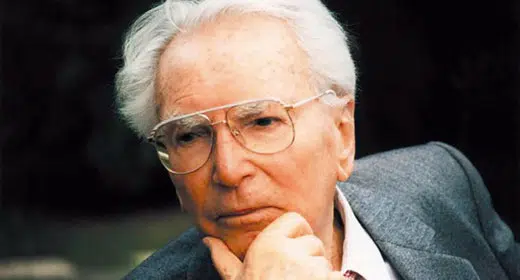by Paulo Coelho: A student asked a Sufi master to reveal God’s fifth name. “Those who know this name are able to change history,” he said. The master asked the student to spend an entire day at the city’s entrance.
The master asked the student to spend an entire day at the city’s entrance.
On the next day, the young man returned. “What did you see?” the master asked him. “An old man tried to come into the city with a sheep to sell.
The guard charged him taxes, but the man had no money. So the guard stole his sheep and expelled the man.
I thought: If I knew God’s hidden name, I would be able to change this situation.”
“You could have avoided this injustice – but you preferred to dream about a revelation. How foolish! Very well, I will reveal God’s fifth name to you: act in favour of others. That’s the only way we can change history.”
During his peregrination to Mecca, a holy man started to feel God’s presence.
In the middle of a trance, he knelt, hid his face and prayed: “Lord, I want to ask you just one thing in my life: may I be granted with the grace never to offend You.”
“I can’t grant you this grace,” the Almighty answered. “If you don’t offend me, I won’t have reasons to forgive you. If I don’t need to forgive you, you will soon forget the importance of compassion toward others as well.
So, keep on your path with Love and let me perform forgiveness once in a while, so that you too don’t forget this virtue.”
Nasrudin – the eternal character of Sufi folktales – was at his doorstep when he saw a teacher passing by with his students.
“Where are you going?” he asked. “We are going to pray so that God gets rid of corruption, as He always listens to the prayers of children,” the teacher answered.
“A good education would have already gotten rid of this. Teach the boys to be more responsible than their fathers and uncles.”
The teacher felt insulted: “Here is an example of lack of faith! The children’s prayers can change everything.”
“God listens to anyone who prays. If He only listened to the children’s prayers, there would not be a single school in the country; there is nothing they detest more than a teacher.”
A disciple approached Rabbi Moshé Haim and said: “Today I met a man who laughed at me and despised my efforts in my spiritual quest.”
“Today I met a violinist,” answered the Rabbi. “He was playing so inspired by God that everyone who approached him ended up singing and dancing.
I did the same and was praising Creation with my joy, when I saw a deaf man approaching me. He kept looking at the violinist and the public dancing.
At the end, he said aloud: ‘How indecent and grotesque the agitation of this flock of mad men!'”
And Moshé Haim concluded: “Those who don’t know how to listen to God’s music are only left to consider it useless.”








































